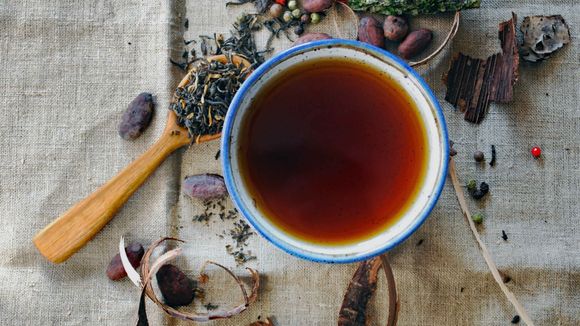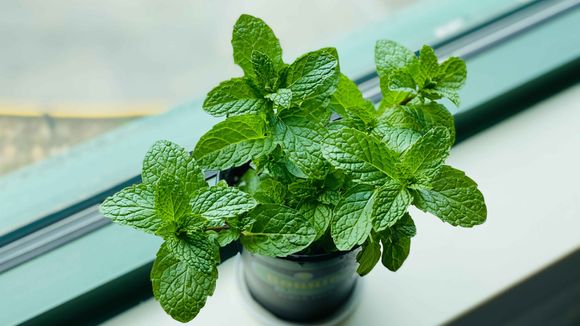Why Use Herbs for Better Digestion and Absorption
Long before we had drugs at our fingertips in the pharmacy, people all over the world relied on plants to treat some of their ailments, including digestive disorders.
Today, many of these same botanical drugs remain widespread for use in common symptoms of digestive problems. Bouts of nausea, vomiting, heartburn, dyspepsia, bloating, belching, flatulence or acute diarrhea, when occasionally or mild, can all be treated alone and with good effect.
More serious or persistent digestive disorders, such as intestinal infections, chronic diarrhea, chronic acid reflux, inflammatory bowel disease (e.g., Crohn's disease and ulcerative colitis), or peptic ulcers, among others, should be discussed with a qualified specialist. Although these digestive problems can also be treated with herbs, the results can be much more variable, and medical judgment is paramount and most important for a successful outcome.
Botanical nervous relaxants
For a healthy digestive function, our bodies need to be in a relaxed state. When we are in a state of anxiety and stress, the "fight or flight" response is triggered. Then digestion always remains in the background to dealing with stress or stressor. When eating in this state, it is common to develop digestive disorders, be it diarrhea, constipation, or very severe abdominal pain.
For those whose digestion is easily disturbed by an emotional disorder, botanical nerve relaxants can have a pronounced positive effect on the nervous system, which is naturally followed by relief in the digestive system. They do this by reducing the stress response an adaptive triggering of the sympathetic nervous system, accompanied by simultaneous shutdown of any other bodily function that is not needed in emergencies for survival. Essentially, these herbs help heal our nervous stomachs by making us calmer.
Six herbs for better digestion and absorption
Mint (Mentha x piperita and Mentha spp.) for digestion
The use of peppermint essential oil as a digestive aid probably dates back to ancient Greece. A few thousand years later, there is already a set of scientific studies that support its use, especially in the form of enteric coated peppermint oil capsules, for symptomatic relief of irritable bowel syndrome. [ref. 1]
The enteric coating of the capsule allows peppermint oil to pass undigested through the more acidic upper areas of the gastrointestinal tract to the lower intestine, where, as reported in the British Medical Journal more than 30 years ago, it has the effect of a mild smooth-muscle relaxant that serves to soothe digestive spasm, inhibits gastrointestinal contraction, relieves gas, and reduces pain and discomfort. [ref. 2]
You can also use mint in other ways. It is not necessary to suffer from a digestive disorder to enjoy mint, at least in the form of peppermint tea. No adverse effects have been reported from mint tea and it may be the most widely consumed herbal infusion with one ingredient. Even the most delicate stomach will be grateful for a cup of peppermint tea after dinner, thanks to its delicate aroma, taste and all the beneficial effects on digestion.
Chamomile (Matricaria recutita, M. chamomilla, Chamomilla recutita)
Chamomile is a plant nerve relaxant that is popular for use in digestive symptoms, used alone or in combination, such as herbal infusion, tincture or homeopathic.
Chamomile has traditionally been prescribed in the treatment of both acute and chronic stomach distress, such as inflammation and spasms of the digestive organs. Although human research is limited, there are studies of dried chamomile flower extracts demonstrating antispasmodic and anxiolytic (anti-anxiety) effects. Along with the antimicrobial and anti-inflammatory properties of chamomile, these actions may explain its overall calming effect on digestion.
Numerous chemical compounds, including apigenin, have been isolated from chamomile flowers. The pharmacological effects of this phenolic flavonoid are not fully understood, but it has been noted that apigenin has an affinity for GABA receptors in the brain where it can exert a natural inhibitory effect on the central nervous system.
Generally recognized as safe and well tolerated, chamomile may, however, cause rare allergic symptoms in those who are sensitive to plants in the families Asteraceae, Umbelliferae, Amaryllidaceae.

Melissa officinalis
Often formulated in combination products, lemon balm, rosemary, and valerian as the next three herbs are good nerve relaxants that can help eliminate digestive cramps, relieve excess gas, soothe malaise, and reduce pain. There is somewhat limited clinical evidence to support their use, but based on observations and available research, these herbs are generally well tolerated and can be taken orally to help reduce symptoms of gastrointestinal disorders.
Lemon balm, also known as melissa, is another member of the mint family, used internationally for centuries to relieve gas, cramps and dyspepsia, as well as to increase tranquility.
Rosmarinus officinalis
Rosemary is known for its antispasmodic effects. Studies of the active ingredients of medicinal plants often show biochemical similarities between different species. Rosemary and lemon balm, for example, share a polyphenolic compound known as rosmarinic acid, which contributes to their beneficial effects.
Valerian officinalis
Valerian is better known for its effects on anxiety and nervous sleep disorders and is often formulated with other herbs such as hops or lemon balm for use as a mild sedative. Historically, valerian has also been used for gastrointestinal problems, such as intestinal cramps and flatulence. 4
Fennel (Foeniculum vulgare)
Fennel, also called kopret, field dill, wild dill, pharmacy dill, fennel, false fenugreek, originates from traditional Ayurveda, Middle Eastern and Mediterranean medicine. Preparations from wild fennel leaves and seeds have been noticed as an aid in preventing and relieving the formation of gas and reducing bloating, heartburn and constipation.
It is also believed that fennel promotes the secretion of digestive enzymes and stimulates appetite. Dill is generally considered safe, although it can rarely cause an allergic reaction. It is not recommended to use it during pregnancy. [ref. 3]
Swedish bitter - a well-known remedy for better digestion
There are many different formulations, passed down over the centuries by elders familiar with the local flora. Swedish bitter, probably the most famous here in the Western world, originated in Europe in the 16th century, where it was used for a number of gastrointestinal symptoms, including stomach cramps. It is believed that one "original" recipe was tincture of aloe (Aloe vera), myrrh (Commiphora myrrha, Commiphora molmol), saffron, senna leaves (Cassia), camphor, angelica root (Angelica), rhubarb root (Rheum rhabarbarum) and other ingredients, in a mixture of several different spirits. Nowadays, there are a number of different preparations called "Swedish bitterness" that contain more diverse combinations of herbs from around the world.
Types of herbal products

Since we encounter different concepts, it is important to clarify what is the difference between tea, herbal infusion, decoction and tincture. These are the different methods we use to prepare the essential oils and additional active ingredients found in medicinal plants.
- Infusion - similar to a decoction, but generally more powerful, with plant materials being allowed to soak in oil or boiling water for a while.
- Tincture — an extract prepared by placing herbs or other plant material in a jar of ethanol or another form of alcohol, letting it stand for several weeks or more, periodically shaking, then strained. Sometimes vinegar or glycerin is used instead of alcohol.
- Herbal infusion — herbal "tea" brewed in water from any plant material other than the real tea plant (Camellia sinensis)
- Decoction — prepared by boiling ground or creased vegetable materials in water, then strained the result.








